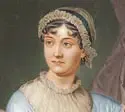Sappho was one of the first known female poets. Most of her work has been lost, but her reputation has lasted through history. Plato called her one of the top ten poets of all time.
Cleopatra was the last queen of Egypt. She formed relationships with two powerful Roman leaders, Julius Caesar and Marc Antony, to protect Egypt from the Roman Empire.
Mary Magdalene (4 BCE–40 CE)
Mary Magdalene was one of Jesus' most devoted followers. She was present at his crucifixion and was the first person to witness his resurrection, making her an important figure in Christianity.
Boudicca (1st Century CE)
Boudicca was a warrior queen who led a rebellion against the Roman Empire in Britain. Her army initially succeeded in destroying Roman cities, but she was eventually defeated.
Hildegard of Bingen (1098–1179)
Hildegard of Bingen was a famous German mystic, writer, and composer. She lived in a convent but influenced popes, kings, and scholars with her visionary writings and music. Her work in religion, healing, and nature made her one of the most important women of the Middle Ages. Her spiritual music is still performed today, and she was declared a saint in 2012.
Eleanor of Aquitaine (1122–1204)
Eleanor was the Queen of France and later of England. She was an important political figure who helped shape European history through her marriages and influence over her sons, who became kings.
Joan of Arc (1412–1431)
Joan of Arc was a French heroine who led the French army to victory against England during the Hundred Years' War. She was later tried and martyred, becoming a symbol of French strength.
Mirabai (1498–1565)
Mirabai was an Indian poet and devotee of Lord Krishna. She defied her royal family's expectations to live as a mystic, spreading the practice of devotional yoga.
St. Teresa of Avila (1515–1582)
St. Teresa was a Spanish mystic and reformer of the Catholic Church. She worked to bring about spiritual renewal and promoted a more personal relationship with God.
Elizabeth I (1533–1603)
Queen Elizabeth I was the ruler of England during a period of great change. She led England through economic growth, the defeat of the Spanish Armada, and established England as a Protestant nation.
Catherine the Great (1729–1796)
Catherine was the Empress of Russia and one of the most influential women in history. She expanded Russian territories and promoted arts and culture, improving the lives of many people.
Mary Wollstonecraft (1759–1797)
Mary Wollstonecraft was an early feminist. Her book A Vindication of the Rights of Women argued that women should have equal rights and opportunities, especially in education.
Jane Austen (1775–1817)
Jane Austen was an English author who wrote novels that are still beloved today, like Pride and Prejudice. Her works helped improve the acceptance of women in literature.
Sojourner Truth (1797–1883)
Sojourner Truth was an African American abolitionist and women's rights activist. She is famous for her powerful speech "Ain't I a Woman?" which called for equality.
Harriet Beecher Stowe (1811–1896)
Harriet Beecher Stowe was an anti-slavery campaigner and the author of Uncle Tom’s Cabin, a book that helped raise awareness about slavery and the civil rights movement.
Elizabeth Cady Stanton (1815–1902)
Elizabeth Cady Stanton was a leader in the early women's rights movement in America. She helped organize the first women’s rights convention and advocated for women’s suffrage.
Queen Victoria (1819–1901)
Queen Victoria was the longest-reigning British monarch. Her era, known as the Victorian Age, was marked by industrial progress, cultural change, and British global influence.
Florence Nightingale (1820–1910)
Florence Nightingale is considered the founder of modern nursing. Her work during the Crimean War led to the professionalization of nursing and significant improvements in health care.
Susan B. Anthony (1820–1906)
Susan B. Anthony was a leading figure in the women's suffrage movement in the United States. She worked tirelessly for women to gain the right to vote and equality in society.
Elizabeth Blackwell (1821–1910)
Elizabeth Blackwell was the first woman in America to receive a medical degree. She broke barriers for women in medicine, inspiring many others to pursue careers in health care.
































